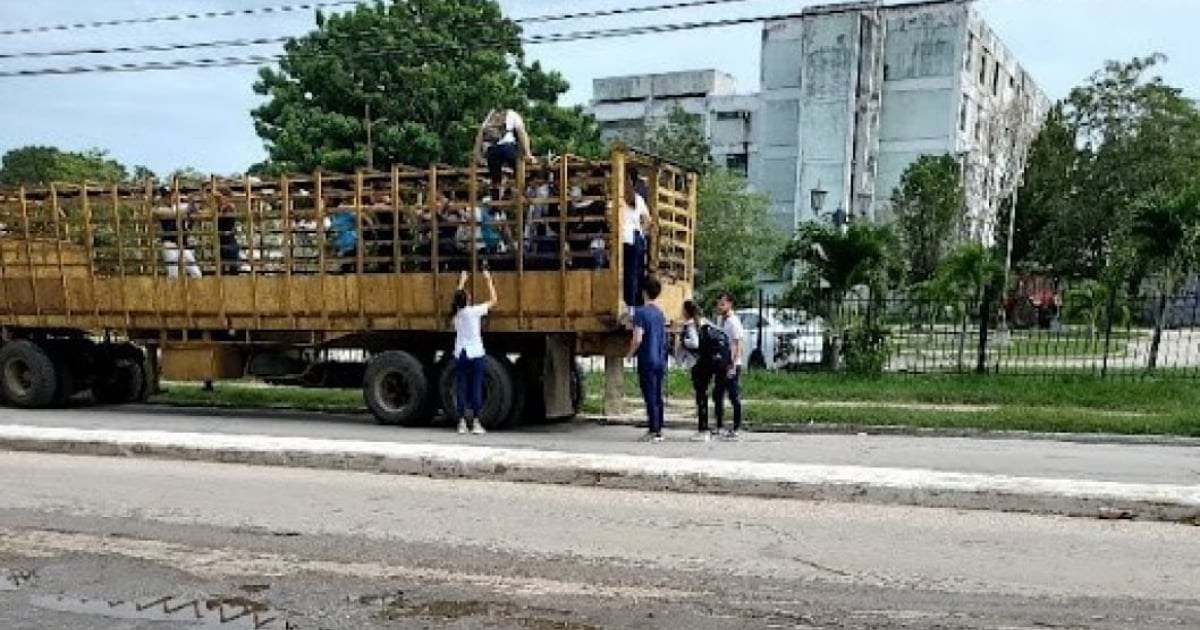Medical students in Sagua la Grande are forced to travel to their university in cattle trucks due to the lack of other transportation options in this municipality of Villa Clara.
One student anonymously reported this to CiberCuba, attaching a photo showing young men and women climbing into the truck, backpacks in tow. "I'm sending this to you because it's a shame to have to see and go through this," the author of the complaint stated.
"We students struggle a lot to get around, and there’s never any food or electricity at the schools," they added.
Transportation Crisis Amidst Government Criticism
Amid the ongoing transportation crisis plaguing the country, President Miguel Díaz-Canel blamed private operators, accusing them of charging exorbitant prices rather than acknowledging his administration's role in the current debacle.
In his April YouTube program 'Desde la Presidencia', Díaz-Canel differentiated between licensed private operators who are connected with local transportation companies and those operating illegally. "And that affects how prices are managed, which are indeed abusive," he criticized.
"These illegal operators are not paying taxes, evading taxes, and running a commercial operation for profit without fulfilling responsibilities," he added.
The president admitted that transportation in Cuba is experiencing the "worst moments of the last few years" but claimed it is a phenomenon linked to the global crisis. According to him, the country lacks the revenue and fuel necessary to stabilize public transportation, which has many vehicles out of service either due to lack of parts, poor technical condition, or fuel shortages.
"In at least 121 municipalities across the 15 provinces, there is significant public concern about the lack of transportation," he conceded.
Transportation Minister Eduardo Rodríguez Dávila, who was a guest on the show, reported that state public transportation currently serves less than half the passengers it did five years ago. Previously, 5.9 million passengers were transported daily, but now that number has dwindled to just 2.7 million, forcing many people to rely on private transportation, whose prices are often unaffordable for the majority, Rodríguez explained.
FAQs on Cuba's Transportation Crisis
Below are some common questions and answers regarding the current transportation issues in Cuba, particularly concerning the plight of medical students and the broader public.
Why are medical students in Sagua la Grande using cattle trucks for transportation?
Medical students in Sagua la Grande have to use cattle trucks due to the lack of available public transportation options in Villa Clara.
What did President Miguel Díaz-Canel say about the transportation crisis?
President Díaz-Canel blamed private operators for charging high prices and claimed the crisis is linked to global issues, without fully acknowledging the government's role in the situation.
How has the transportation crisis affected public transportation in Cuba?
Public transportation in Cuba has been severely impacted, serving less than half the passengers it did five years ago, leading many to rely on expensive private transportation options.
